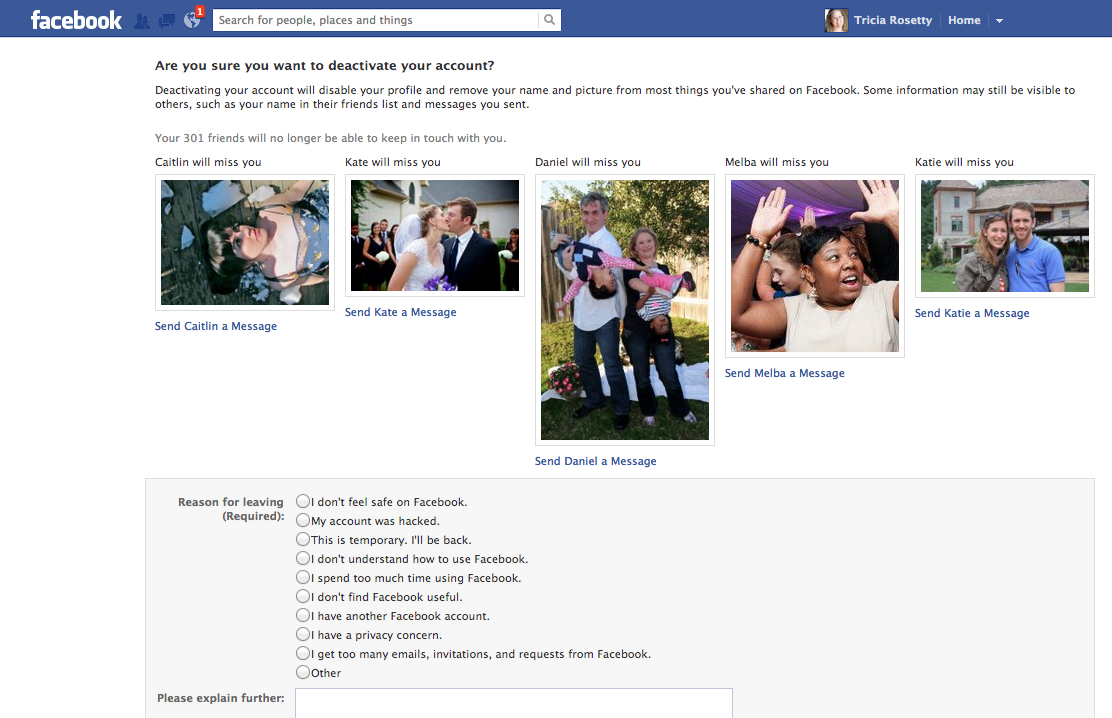The Facebook Fast
 Almost a month ago, I got the notion in my head to find out what life would be like without Facebook. I signed up in 2006, and while I was no longer at my peak use, Facebook had become integrated in my life in other ways. I wanted to find out how dependent my online life was on Facebook. Here's what I discovered.
Almost a month ago, I got the notion in my head to find out what life would be like without Facebook. I signed up in 2006, and while I was no longer at my peak use, Facebook had become integrated in my life in other ways. I wanted to find out how dependent my online life was on Facebook. Here's what I discovered.
- Social login: I use Facebook for social sign-on for a number of apps and websites. Losing this functionality was one of my biggest concerns, but as it turns out, I don't depend on it nearly as much as I thought I did. Most sites allowed me to use my Twitter account to sign in, so dropping Facebook didn't mean losing social sign-on.
- Information: Facebook provides a quick way for me to look up information I should really already know, like my roommate's birthday or how to properly spell my new niece's name. I can do it on the spot without anyone being the wiser. I do miss that.
- Relationships: To be perfectly honest, the only pictures and milestones I miss having Facebook for are of my niece and nephew, and not having Facebook available at all times makes it more difficult to show off their cuteness on the fly. Okay, I also miss sharing cat videos with friends (they don't seem worthy of an email). What I don't miss, however, is life-bragging™ of people I went to high school with, or the constant political banter the election season and the wake of a tragic shooting in Connecticut. Instead, I get to just have real conversations with people about these important topics. People with whom I have an actual relationship of substance I talk with in person, on the phone, or (gasp!) write letters.
- Advertising: One positive of Facebook is it provides small local businesses with a free online presence that doesn't look horrid. Deactivating my Facebook account didn't mean I couldn't access basic information like hours through Facebook, but it did mean I couldn't offer my support through Facebook likes. On the other hand, now I don't have to deal with a skewed feed telling me about all my friends liking Walmart, and that's pretty great.
Ultimately, leaving Facebook hasn't had nearly the withdrawal effect I expected, which is great. I left the app on my phone to find out how much time I mindlessly used it, and after about a week, the habit drastically reduced. I'm happy it's been that easy to let go of a false sense of connection in favor of fostering more meaningful ones.